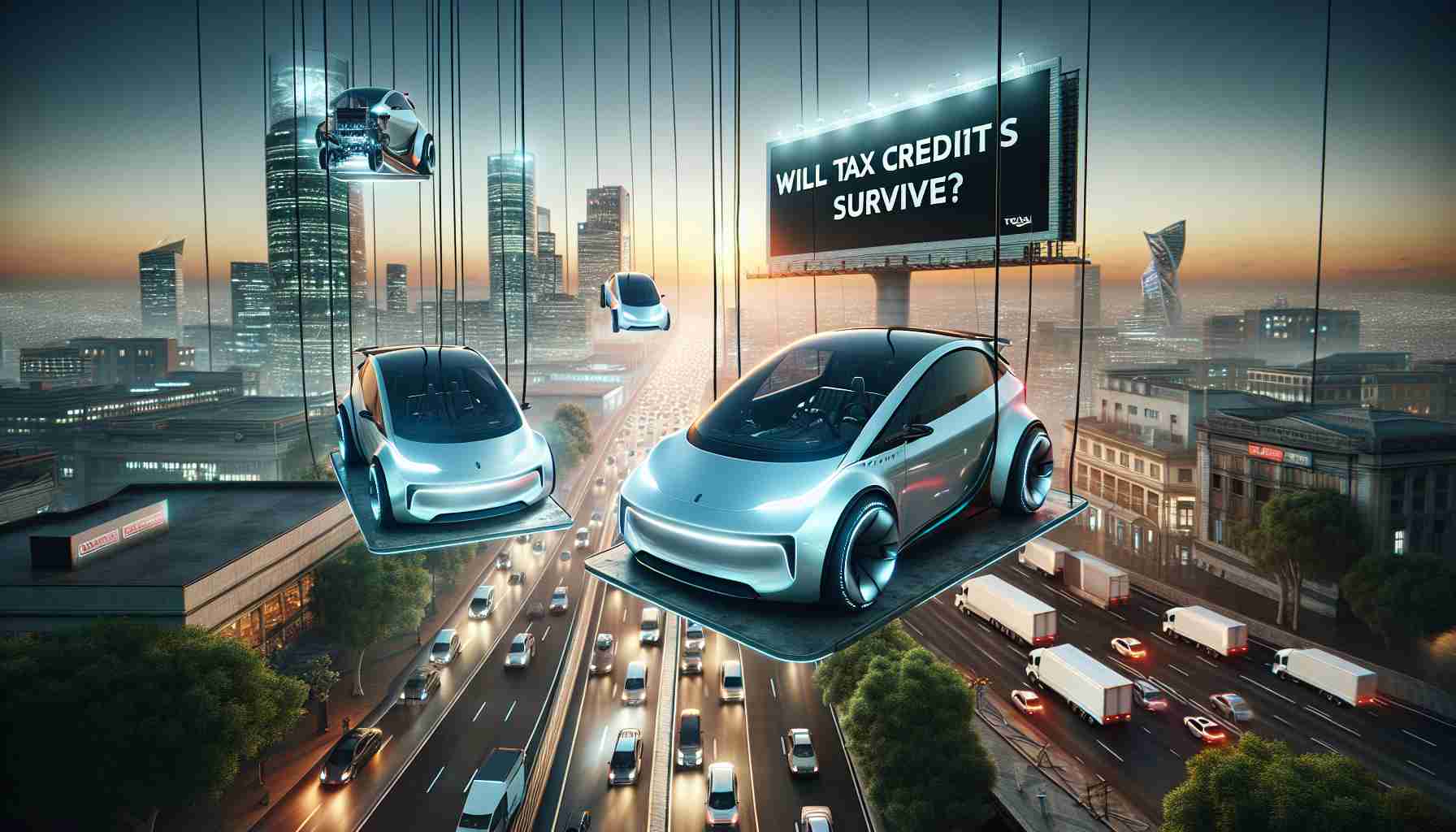As President-elect Donald Trump sets his sights on dismantling the “green new scam,” a coalition of electric vehicle (EV) and battery manufacturers is making a powerful plea to preserve critical tax credits. The Zero Emission Transportation Association, which includes prominent EV makers like Rivian, Tesla, and Lucid, as well as battery giants Panasonic and LG, is urging Trump to maintain the federal incentives that have fueled EV growth.
Since 2011, buyers of electric and plug-in hybrid vehicles have enjoyed a federal tax credit of up to $7,500, a pivotal factor in driving consumer interest and investment in zero-emission transportation. This incentive, along with production credits, has significantly fostered job creation and economic opportunities, particularly in states like Ohio, Kentucky, Michigan, and Georgia.
The coalition strongly supports the Section 45X tax credit, introduced under the Biden administration’s Inflation Reduction Act. This credit aims to bolster the U.S. production of battery components and vital minerals, essential for reducing dependency on foreign markets and encouraging domestic innovation.
Former Vice President Al Gore, leading the charge, highlighted the necessity of these tax incentives for sustaining the domestic EV industry. Without this support, the U.S. risks losing its competitive edge against global markets like China.
As Trump prepares to take office, the future of these tax credits remains uncertain, sparking debates over the balance between economic growth, technological advancement, and environmental responsibility.
The Future of EV Tax Credits: Could Technology and Innovation Be at Risk?
In the rapidly evolving landscape of electric vehicles, recent discussions have centered around the critical federal tax credits that have significantly propelled the industry in the United States. With a change in administration on the horizon, led by President-elect Donald Trump, there are questions about the sustainability and future of these incentives.
Emerging Technologies and the Green Initiative
Electric vehicles (EVs) are at the heart of a transformational shift in how we think about mobility and sustainability. The tax credits, up to $7,500, have been instrumental in this transition, backing significant technological advancements in battery storage, energy efficiency, and infrastructure development. States such as Ohio, Kentucky, Michigan, and Georgia have notably benefited, seeing increased job creation and technological investments due to these incentives.
Furthermore, the Biden administration’s introduction of the Section 45X tax credit under the Inflation Reduction Act focuses on spurring domestic production of battery components and minerals. This is not just about maintaining environmental policies but also about enhancing technological sovereignty, reducing dependency on foreign markets, particularly China.
Controversies and Questions
The ongoing debate about maintaining these tax credits reveals broader questions: Should the government spearhead such financial incentives, and what are the risks of phasing them out?
– Will removing tax credits impede technological growth? The incentives have encouraged innovations like more efficient batteries and faster charging stations. Without sustained financial backing, the pace of such advancements could decelerate, potentially handing technological leadership to countries like China, which is heavily investing in the EV sector.
– Is there an economic trade-off? Critics might argue that these incentives are costly. However, proponents point out that they generate substantial economic growth, job creation, and, ultimately, technological advancements. It’s a delicate balance between initial expenditure and long-term economic and environmental benefits.
The Pros and Cons of Tax Incentives for EVs
– Advantages:
– Stimulates growth in a future-forward industry.
– Reduces greenhouse gas emissions.
– Creates jobs in manufacturing, research, and technology development.
– Encourages the shift away from fossil fuels.
– Disadvantages:
– Potential strain on government budgets.
– Risk of market distortions if not implemented correctly.
– Dependence on federal incentives could stifle market-driven innovation.
What’s Next for Innovation and Industry?
The potential dismantling of these tax credits poses significant questions about the future trajectory of the EV industry. Without these incentives, there could be a slowdown in innovation and adoption rates, causing the U.S. to lose its competitive edge globally.
EV companies and consumers alike are watching closely, aware that policy decisions will shape the future of an industry poised as a crucial element of sustainable development. As such, maintaining or revising these tax incentives could determine the next great leap in technological advancement and environmental responsibility.
To follow further developments on this topic, explore resources from the White House, Rivian, and Tesla for up-to-date insights on policy changes and their impact on the EV landscape.







